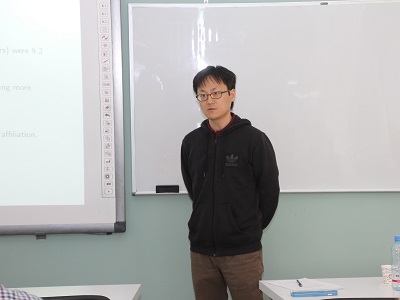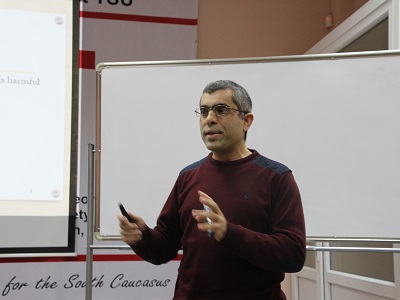On March 26, ISET hosted Dr. Lotta Björklund Larsen of Stockholm University, Sweden, who presented a paper entitled ‘Tax Compliance. A Review of Recent Studies’.
“How are people made to pay tax, at the right time and the right amount?” Dr. Björklund Larsen began. “How are they made to comply? This is an eternal research question for tax collectors, law and policy makers, politicians, as well tax scholars. It is also a question that cannot be answered from the perspective of one scientific angle. In this presentation I reviewed research about tax compliance drawing on recent studies from economics, political science and anthropology. I argued that in order to understand why we pay tax—that is, why we comply with taxes and taxation—as well as why we avoid doing so, we have to look beyond legal changes, psychological experiments, economic results, the organization of revenue collection and all actors’ practices in society’s tax arena and study the type of relations, and expectations, that taxpaying is seen to create in society.
On March 21, ISET hosted Dr. In Kyung Kim, Assistant Professor of Nazarbayev University, Kazakhstan, who presented a recently-authored paper entitled 'Effects of chain affiliation in the movie theater industry'.
According to the paper, one of the most salient features in retail and service industries in the past few decades is the rapid spread of chain establishments. In the U.S., for example, the sales of chain firms ($1.3 trillion) were 9.2 percent of the total GDP in 2009 (Kosova and Lafontaine, 2012). As chain firms have been constantly replacing independent, stand-alone establishments, there is also a growing concern regarding the retail sector becoming more concentrated over time. For instance, the Korea Fair Trade Commission and the National Commission for Corporate Partnership imposed restrictions on the entry of new franchisees in the bakery industry in 2013. Despite its importance, however, there is little empirical evidence on the implication of chain affiliation.
On February 14, Prof. Muhammad Asali delivered a research seminar and presented his work on the relationship between the labor market and the healthiness of the economy. The paper, entitled “Labor Market Discrimination and the Macroeconomy,” which is a joint work with his former student Ms. Rusudan Gurashvili, aimed at measuring and documenting the discriminatory wage gaps in Georgia within gender and ethnic dimensions. Second, and more importantly, the study aimed at exploring the relationship between the found wage gaps and the macroeconomic performance of the country (as proxied by economic growth and unemployment).
Unlike the usual approach in literature of this kind, which examines the growth-discrimination relationship in the framework of a cross-section of countries, the presented study introduced an innovative, time-series-based approach to study this relationship, in the short-run, the long-run, and the steady-state.













